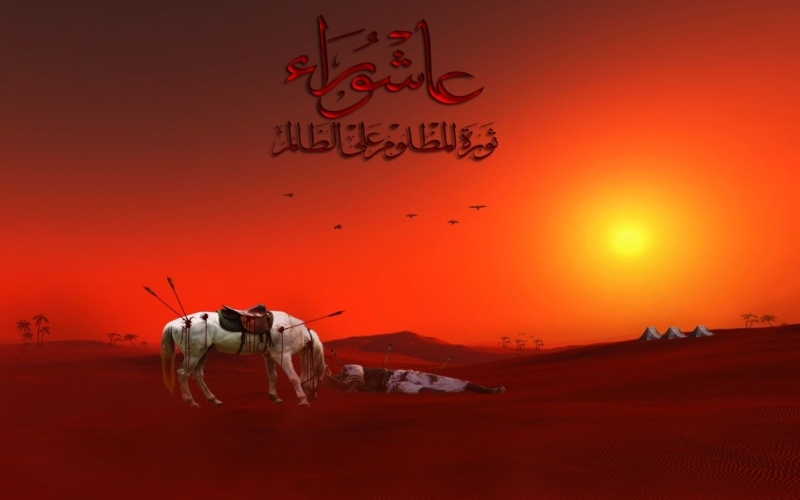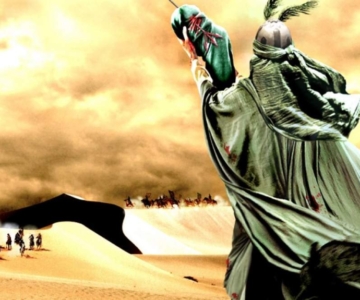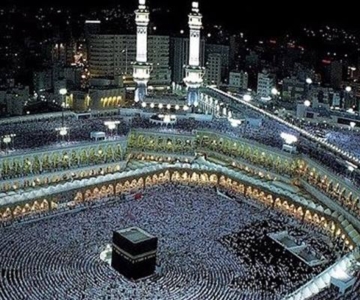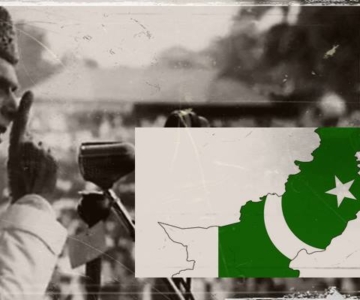Muharram reminds us of the Kerbala tragedy; and Imam Hussain’s (AS) refusal to submit to the autocracy of Yazid. This episode is laden with deep symbolism. Imam Husain and his faithful companions preferred to die on the banks of river Euphrates but did not submit to what was wrong. And what was wrong beyond the theological discourses. Hussain (AS) raised the voice of dissent against the emergence of the Empire and the Church in Islam. Hussain (AS) offered his life and that of his family and associates to resist the confiscation of the right of the Muslims to select their leader, to resist the emergence of the Empire and preserve Islam’s tribal egalitarianism against an emergent iniquitous economy.
My piece originally published in THE NEWS
The immortal words of Khawaja Moinuddin Chishty epitomize the reverence and devotion of Muslims towards Imam Hussain (AS):
Shah ast Hussain,
Badshah ast Hussain
Deen ast Hussain, Deen
Panah ast Hussain
Sardad na dad dast,
dar dast-e-yazeed,
Haqaa key binaey La ila ast Hussain
Ruler is Hussain, Emperor is Hussain,
Faith is Hussain, guardian of
faith is Hussain .
Offered his head, and not the hand to Yazid.
Indeed, Hussain is the foundation of La-ilah (the
declaration that none but God is absolute and almighty)
Muharram reminds us of the Kerbala tragedy; and Imam Hussain’s (AS) refusal to submit to the autocracy of Yazid. This episode is laden with deep symbolism. Imam Hussain and his faithful companions preferred to die on the banks of river Euphrates but did not submit to what was wrong.
And what was wrong beyond the theological discourses. Hussain (AS) raised the voice of dissent against the emergence of the Empire and the Church in Islam. Hussain (AS) offered his life and that of his family and associates to resist the confiscation of the right of the Muslims to select their leader, to resist the emergence of the Empire and preserve Islam’s tribal egalitarianism against an emergent iniquitous economy.
The ruling classes had to undo a tribal republic created by the Prophet (pbuh) where blacks, the poor, non-Arabs and minorities co-existed with Arab Muslims. Hussain (AS) died helpless, calling for support, not just to the treacherous residents of Kufa but for the generations to come. This is why Iqbal cried years later that the blood of Hussain (AS) had created a garden [of liberation] challenging tyranny for all times to come.
When Islam found an Empire, a Clergy was born that in the first place had no room in the radical faith evolved in Makkah and Medina. The leading scholars later were coerced or co-opted by the Empire. The horrific treatments meted out to the scholars such as Imam Malik and Abu Hanifa testify to this distortion.
The clerics who compiled Islamic Law under the Abbasids made a firm alliance with the Kings and added the ‘apostasy Fatwa’ against any movement that challenged the Abbasid kingdom. Sufis, philosophers, and scholars all got their share of killings at the hands of the monarchial state that Hussain (AS) challenged at Kerbala.
The tragedy in Kerbala also contributed to the intellectual discourse on the freedom-determinism debates. Abu Sa’id ibn Abi al-Hasan Yasar al-Basri declared that man was totally responsible for his actions. He argued this position in a letter addressed to the Umayyad caliph — Abd al-Malik. This famous letter attacked the widely held acceptance of determinism; and reiterated that early theological disputes were largely related to the struggles against despotism and oppression.
The debate which started after the Kerbala tragedy matured in to the intellectual wrangling among Mu’tazila — trying to give a rationally coherent account of Islamic beliefs — and Ash’ariyya — reacting against the excessive rationalism of the Mu’tazila. Thus the anti-monarchy debates ensued within the faith.
In the words of Ali Shariati, “martyrdom is a death which is…, selected with all of the awareness, logic, reasoning, intelligence, understanding, consciousness and alertness that a human being has.”
It is a shame that the clergy, over the centuries, trivialised this epic struggle and reduced it to the present day provenance of present day sectarian conflicts. Over time these differences have become bloodier and un-holier. The ugly face of sectarianism is now haunting the entire Islamic world. Pakistan has been a battle ground for over a decade where regressive interests use the occasion of Muharram to kill innocent believers and create divisions. And, at the global level, the imperial games around sectarianism have shown how the institution of Clergy of any brand can only obfuscate the message of Islam and becloud the sacrifice of Hussain (RA) and his associates.
This Muharram comes in the wake of Pakistan’s move towards democracy and re-establishing the culture of dissent. The brutal murder of Benazir Bhutto weeks before the advent of this historic marker becomes most relevant; and re-affirms the message of I. Hussain (AS). Perhaps this is why she is now widely referred to as a Shaheed. And, how can we forget the hundreds who have died in suicide bomb blasts and Eidgahs in the recent months. The new-age manifestations of Yazid are at work and there are countless who are resisting it. It is true that there are fears of blood-baths and the scare that the usual miscreants will be at work in the coming days. How unfortunate, that we have become victims of man-made dictums that the Clergy loves to reiterate; and militancy espouses as the Divine truth.
But nothing can be static. Change is the only eternal and immortal reality. Muharram is therefore also the time when Iqbal and Shariati’s calls for ijtehad and transformation resonate. Muharram, for this reason, cannot be a mere package of localised rituals in the Islamic world. It is also the time to restate the radical message of change at the core of which lies social and political justice.
The martyrdom at Karbala was not the end. Hazrat Zainab’s struggles indicate the way forward. In Shariati’s words:
“Those who died committed a Husaynic act.
Those who remain must perform a Zainabic act.
Otherwise, they are Yazids”
Therein lies the challenge of transforming the mourning for Imam Husain (AS) into action that would truly make us his followers.



